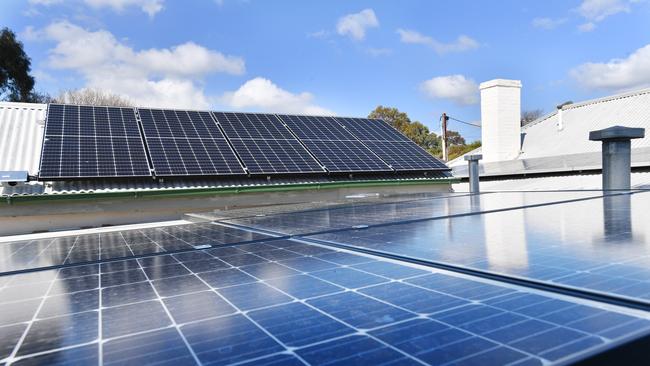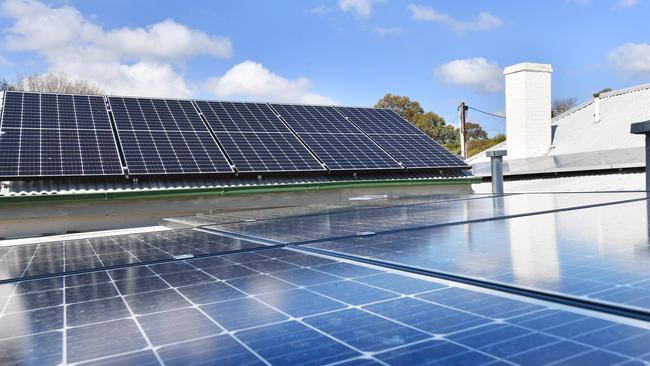Households to lose in proposed AEMC rooftop solar changes
Rooftop solar owners have fought back at a proposed ‘sun tax’ as a battle looms over charging them for exporting power to the grid.

Rooftop solar owners have fought back at a proposed ‘sun tax’ as a battle looms over distributors charging households to export power to the grid, in a bid to ease congestion.
Over 2.6m Australians with rooftop solar may face charges to export electricity to the grid as the national rule-maker grapples with how to avoid bottlenecks on the electricity network.
Consumers with rooftop solar face a $70 annual reduction in the amount of money they earn from sending excess solar power back to the grid with estimates a typical 4-6 kilowatt system would reap $900 a year compared with $970 currently.
The Australian Energy Market Commission is proposing the change to avoid the problem of ‘traffic jams’ on the network which are likely to get worse as grid infrastructure was built when power only flowed one way.

Half of all Australians will have rooftop solar systems within a decade, the AEMC predicts, and it wants to make changes to ensure new adopters of solar can still reap the benefits of going green.
Networks may introduce export charges although it is likely some surplus power could still be sent back to the grid for free up to a certain cap.
Consumer group Solar Citizens slammed the move saying charging households to export their power was unfair and would increase the payback periods for installations and potentially discourage people from investing in solar.
“Big coal and gas generators aren’t charged for exporting their power to the grid, so why should we be slugging Aussie families with panels on their roofs?” Solar Citizens national director Ellen Roberts said.
‘The Queensland and Victorian Governments have already publicly stated their opposition to the sun tax, but now we urgently need all of our State Energy Ministers to step up and protect solar owners from this discriminatory charge.”
Still, doing nothing was not an option according to the AEMC’s draft determination, who said rooftop solar owners could suffer even bigger cuts if changes were not made.
“While export charges on a 4−6kW system might lead to a marginal drop in solar earnings, owners will face that same drop if they are constrained from exporting energy just 10 per cent of the time. Being constrained 50 per cent of the time would reduce their solar earnings by more than $300 per year,” AEMC chief executive Benn Barr said.
Four out of every five customers who do not have solar would also see their household bills drop because they would no longer pay for solar export services they weren’t using, the AEMC said.
“Letting networks give customer incentives to use the system better means supply and demand on the grid can be smoothed out over the course of the day. It helps address large amounts of solar being exported in the middle of the day when it benefits the system least,” Mr Barr said.
Energy Networks Australia, representing transmission and distribution companies, said the reform was overdue.
“Without changes to how distributed energy resources is managed, the ongoing growth in solar means networks would increasingly need to restrict power exports or even block solar connections to prevent voltage spikes and even local black outs,” ENA chief executive Andrew Dillon said.
South Australia has previously voiced concerns about the power grid blackouts that could come unless it can solve problems integrating huge supplies of rooftop solar.
One third of the state’s households have rooftop solar systems installed but the strong uptake has created issues for the renewables-heavy grid, with solar at times generating so much surplus energy that demand falls near zero, destabilising the power system.




